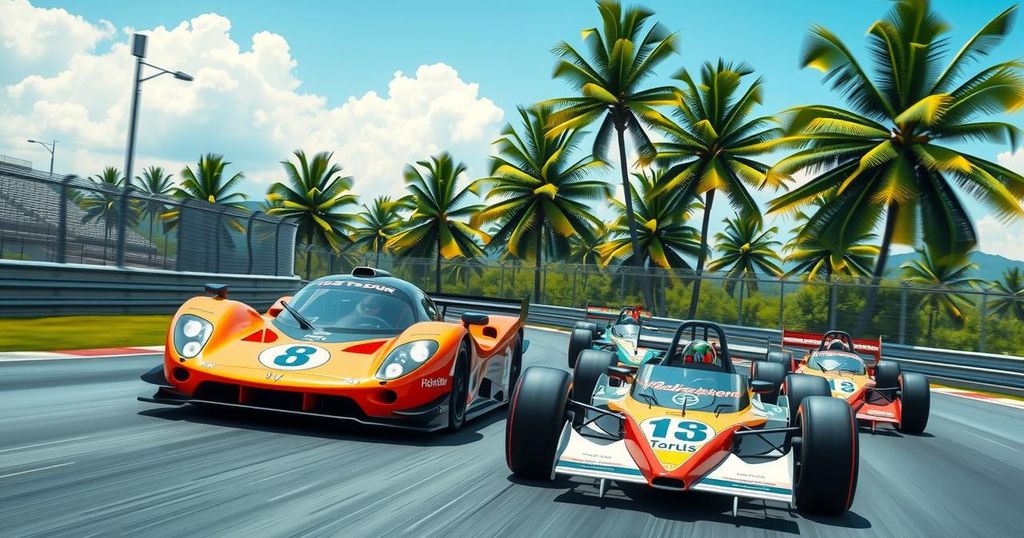Cars
AFRICA, ASIA, AUSTRALIA, AUTODROMO ENZO E DINO, AUTOMOTIVE, BANGKOK, DOME, DOMENICALI, EUROPE, F1, FERRARI, FORMULA 1, INFRASTRUCTURE PROJECTS, MAD, MADRID, MELBOURNE, OCEANIA, RWANDA, SKY SPORTS F1, SOUTH AMERICA, SPAIN, SRETTHA THAVISIN, STEFANO DOMENICALI, THAI GOVERNMENT, THAILAND, TOURISM, TRADE
Marcus Chen
0 Comments
Progress of Thailand’s Formula 1 Race Plans: Insights from CEO Domenicali
Stefano Domenicali, Formula 1 CEO, plans a visit to Thailand to discuss hosting a Grand Prix race in Bangkok. The F1 calendar is expanding, with new potential venues seeking inclusion as Domenicali aims to broaden the sport’s global appeal during his extended leadership. Interest in rotational races and new markets reflects the growing popularity of F1 worldwide.
Thailand’s aspirations to host a Formula 1 Grand Prix have gained momentum, with Formula 1 CEO Stefano Domenicali slated to visit Bangkok for discussions following the Australian Grand Prix. The current F1 calendar is exceptionally busy, featuring 24 Grand Prix races for the 2025 season. Nevertheless, the rising popularity of Formula 1 has encouraged new locations to seek inclusion in the forthcoming years.
The Madrid Raceway has been added to the list for the 2025 season, marking another potential location for F1. Furthermore, the Belgian Grand Prix has reached an agreement for a rotational hosting arrangement, thereby creating opportunities for additional tracks. Recently, it was confirmed that Domenicali will continue as president and CEO of Formula One Management for at least five more years, a role he has held since 2021.
Domenicali’s agenda during his extended tenure will prominently feature expanding Formula 1 into new markets. He stated, “I think that the good thing that we were able to do in the last couple of years is to focus on the places that we do believe represent the future for Formula 1,” indicating growing global interest in locations beyond Europe. After the Australian event, his upcoming trip to Bangkok aims to gauge government interest in developing F1 there.
The idea of organizing a street race in Bangkok has been under consideration for some time and appears closer to fruition since Thai Prime Minister Srettha Thavisin attended the Emilia Romagna Grand Prix last year. Following his visit, he remarked on discussions with Domenicali about Thailand’s ambition to host F1 races, aligning with the government’s initiatives to elevate the country’s profile on the international stage.
In terms of African expansion, Rwanda has expressed its desire to revive F1 in Africa, though challenges persist due to regional conflicts as highlighted by representatives of the Democratic Republic of Congo. There are also discussions regarding Argentina potentially rejoining the calendar, having last hosted a race in 1998.
Ahead of the 2025 season’s commencement in Australia, McLaren CEO Zak Brown has endorsed the concept of rotational races. Nonetheless, he believes that the calendar has reached its limit at 24 races. He asserted, “I don’t think it has hit its peak, which is quite exciting,” while suggesting a structure of 20 fixed races with an additional eight that rotate, which would increase market exposure while maintaining the 24-race limit.
In summary, Thailand’s pursuit of hosting a Formula 1 Grand Prix is advancing, particularly with Stefano Domenicali’s scheduled discussions in Bangkok. The persistent interest in expanding the F1 calendar, highlighted by current developments in various locations, emphasizes Formula 1’s global reach. With innovative hosting strategies being proposed, the future of F1 includes exciting prospects for new markets while ensuring sustainable competition formats.
Original Source: www.autosport.com




Post Comment